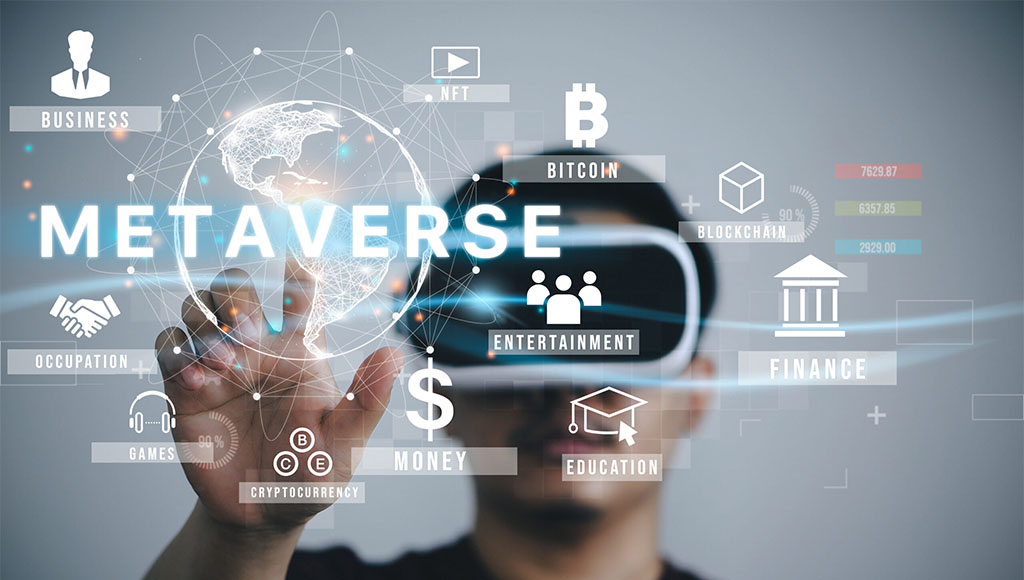The Future of CX: Into the Metaverse
-
IntouchCX Team

“The metaverse can connect consumers with brands in a more emotionally positive and stimulating way, turning today’s online transactions into immersive, real-time conversations.”
The “metaverse” has become a popular term used among technology leaders and users in the last year. The reality of an integrated metaverse is closer than ever. In fact, Gartner predicts that by 2026, 25% of people will spend at least one hour a day in the metaverse for work, shopping, education, social and/or entertainment.
Elements of the metaverse already exist in gaming settings offering immersive, virtual experiences that you can’t find in the physical world–yet. While it is largely conceptual at this stage and has plenty of barriers to overcome, expanding the metaverse to include the whole world would create unlimited possibilities for new customer experiences that both brands and users could benefit from.
What is the Metaverse?
The metaverse is a collective platform where physical and virtual worlds are linked together to create new user experiences that are accessible through virtual reality devices, from tablets to head-mounted displays. It is the convergence of physical and virtual reality technologies to create enhanced, three-dimensional environments where users can interact with their surroundings and other users. While virtual worlds are already at play in the gaming industry and with select platforms, a full realization of the metaverse will be integrated into our daily lives, similarly to how we interact online in everyday life today.
In the metaverse, users can interact with virtual realities in real time, which are augmented within physical environments/realities. This will require some combination of virtual reality (VR) and augmented reality (AR), known as extended reality (XR). The metaverse will lean heavily on XR technology, artificial intelligence, spatial anchoring, and more.
Like the introduction of social platforms in the early 2000s, interactive virtual realities will be the next stage in our technological evolution to be integrated into our everyday lives. Experts even expect the metaverse to have its own economy with native digital assets and trade, building on innovations like blockchain technology, cryptocurrency, and non-fungible tokens (NFTs).
How Will the Metaverse Influence CX?
It’s expected that 30% of organizations will have products and services ready for the metaverse by 2026. As more enterprises join this technological evolution, the metaverse will impact CX in a way that could elevate consumer relationships and engagement. With XR innovations, brands could create more engaging, interactive customer experiences for users, altering the way businesses market themselves. It will reshape the way consumers interact with brands at every point along the customer journey as well as fundamental enterprise operations.
For example, innovations like digital twins and 3D avatars could allow consumers to experience physical goods, services, and locations virtually through XR technology before buying, helping to entice them into making purchases based on their virtual experiences. This could create opportunities for more affordable and resource-efficient customer experiences in the long-term, particularly for retail businesses. Consumers could visit a virtual store and try out products virtually before purchasing without the need for physically stocked goods. Or, consumers could virtually visit a real-world location without leaving their home, an enticing marketing strategy for travel. The metaverse can connect consumers with brands in a more emotionally positive and stimulating way, turning today’s online transactions into immersive, real-time conversations competing with real world experiences.
What CX Challenges Will Brands Face in the Metaverse?
One of the most pressing concerns both brands and consumers have about the metaverse is data privacy and fraud protection. Businesses will have the challenge of putting advanced systems in place to protect consumers from fraud and data breaches, especially as virtual realities play a larger role in daily life.
Another challenge innovators need to address is how to seamlessly connect the virtual world into the physical world. For those who are not technologically savvy, this could pose an even bigger challenge than for people who have had firsthand experience using VR/AR technology, such as avid gamers. Additionally, the upfront cost of these technologies is high, making both accessibility for consumers and implementation for enterprises extremely difficult.
Addressing CX has to extend beyond metaverse users to the teams that support the platforms. Companies have to take a holistic view in improving employee experiences to create more positive experiences overall. Immersive experiences challenge the use of traditional tools to test concepts, improve user journeys, and gain deeper insights beyond biometric reads and surveys through neuroscience insights.
The Heart of the Matter
A fully developed metaverse is closer than we think, and it has the potential to revolutionize customer experiences across all industries. However, the state of omnichannel customer care is expected to expand to include the metaverse as another consumer touchpoint rather than replacing human-driven CX. What does this mean for your brand? Implementing advanced CX solutions should be at the forefront of your customer care today so you’re ready for what the metaverse holds tomorrow.
Learn more about IntouchCX’s role in the metaverse to stay ahead of what’s next with CX.















